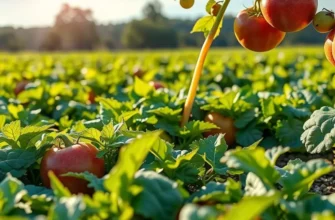Herbs enhance flavor, nutrition, and aesthetic value in our meals. However, their perishable nature often leads to waste. Learning practical techniques for preserving the freshness of herbs not only minimizes waste but also ensures flavorful cooking. This guide presents easy strategies that every home cook can implement to store herbs effectively, keeping them vibrant and ready for culinary use.
Storing Fresh Herbs: The Basics

Storing fresh herbs properly is an art that can save both money and time while preserving flavor. Freshly cut herbs, when stored incorrectly, tend to wilt quickly, losing not only vibrancy but also nutritional value and aroma. Knowing how to tackle these issues involves a few core practices: washing, drying, storing, and choosing the right conditions.
Begin by gently washing your herbs. Submerge them in a bowl of cool water and swish to remove dirt and pests. Lift them out and change the water if needed until it remains clear. Do not use hot water; it speeds wilting.
Once cleaned, drying is crucial. Excess moisture causes herbs to decay faster. Spread them out on a clean kitchen towel and pat dry or use a salad spinner for leafy types like basil and cilantro. A thorough, gentle drying increases longevity by reducing mold risk.
Next, consider your storage method. Leafy herbs, like parsley and cilantro, benefit from being treated similarly to fresh flowers. Trim the stems and place them upright in a jar with about an inch of water. Cover them lightly with a plastic bag and store in the refrigerator. Change the water every couple of days to keep them fresh.
For herbs such as thyme, rosemary, and sage, which are more robust, wrapping them in a damp paper towel and storing them in a sealed container or zip-lock bag in the fridge is ideal. Avoid airtight seals as they can trap moisture, promoting spoilage.
Temperature control is another essential factor. Most herbs like a cool environment but are sensitive to fridge cold spots. Avoid placing them too close to the fridge’s back wall, where temperatures can dip below freezing, damaging the delicate leaves.
For those interested in minimizing food waste and experimenting with different storage options, exploring other sustainable practices might be useful. You can find more ideas on eco-smart kitchen storage here.
Keep in mind that some herbs, such as mint, benefit from room temperature. If you’re unsure, keep an eye on your herbs daily and adjust methods as your storage knowledge grows. With practice, these techniques will become an integral part of your culinary routine, helping you to keep greens green longer.
Advanced Preservation Techniques for Lasting Freshness

Preserving the vibrant essence of fresh herbs requires innovative techniques geared towards maximizing their flavors and longevity. Let’s explore a range of advanced methods ensuring your herbs remain a staple in your kitchen throughout the year.
Freezing herbs can drastically extend their shelf life while retaining their robust flavor profiles. Begin by washing and thoroughly drying the herbs to eliminate any surface moisture. Once dried, chop the herbs and place them into ice cube trays. Cover them with water or broth, then freeze. This method not only preserves the herbs but also provides convenient, portioned access to them.
Storing herbs in the freezer keeps them fresh for several months, although their texture may change slightly. To revive the herbs, consider using them directly in cooked dishes. For example, adding a frozen herb cube to simmering soups or stews integrates their flavors effortlessly.
Drying herbs is another effective preservation method that concentrates their flavors while ensuring longevity. Utilize an oven or a dehydrator set to low heat for optimal results. Spread the herbs evenly on a baking sheet and dry them until they become brittle to the touch. Store dried herbs in airtight containers, away from direct light, to preserve their potency.
This approach is particularly beneficial for hardy herbs such as rosemary and thyme. They can maintain their flavor for months, enhancing dishes like roasted meats and rustic breads.
For a creative twist, consider making herb-infused oils. Gently heat a neutral oil, then add your choice of herbs, allowing the mixture to infuse over low heat. After the flavors are melded, strain the oil and store it in a sterilized bottle. This method not only captures the essence of fresh herbs but also creates a versatile condiment that can elevate salads and drizzled on grilled vegetables.
These infused oils can last up to a month when kept refrigerated. Their flavor intensity provides a delightful homemade alternative, reminiscent of the fresh herbs from which they originated.
By employing these advanced preservation techniques, you can savor your favorite herbs even during off-season months. These methods are not only efficient but also reduce waste, aligning with eco-smart kitchen storage principles as explored further in Safer Storage of Sauces.
Harnessing the essence of fresh herbs through freezing, drying, and infusion not only preserves their unique flavors, which can have a profound impact on your cooking, but also fosters a sustainable approach to herb management. Experiment with these techniques to discover which ones best complement your culinary adventures.
Final words
Keeping herbs fresh requires a blend of the right techniques and a little creativity. By properly storing and applying preservation methods, you can enjoy the rich flavors of herbs long after they’ve been harvested. From simple storage solutions to advanced preservation techniques, these strategies not only help reduce food waste but also enrich your culinary experiences. Prioritize herbs in your kitchen management to enhance your meals and promote sustainable practices.







